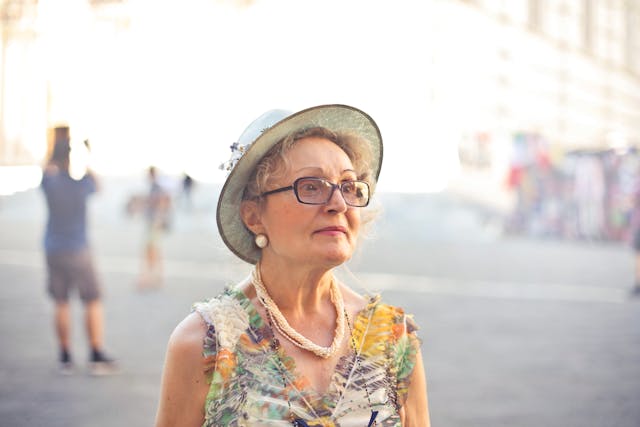Be Skin Aware - 5 ways to reduce your risk of developing skin cancer
Find out moreSkin cancer is the most common type of cancer in the UK. Over 80% of skin cancers are caused by UV radiation, which is given off by the sun’s light rays (and tanning bulbs in sunbeds). This month, Check4Cancer is sharing a series of blogs exploring being skin aware. In this blog, we explain how to reduce your risk of developing skin cancer.
Here are 5 easy ways you can reduce your risk of developing skin cancer today:
1. Seek shade
The strength of UV radiation from the sun varies throughout the day and between seasons, as measured by the UV index. When the UV index is high, for example between 11am and 3pm, the sun’s rays are very powerful and risk causing skin damage in minutes. During periods of high UV index forecasts, the best protection for your skin is to seek shade.
Find out the UV index in your area.
2. Cover up!
Areas which are regularly exposed to the sun such as shoulders, arms and face are at an increased risk of sunburn and UV damage. Wearing loose-fitting, light-coloured clothing made from close-weave fabrics such as polyester or rayon, offers an effective barrier against the sun’s harmful UV rays.1
3. Wear a hat
As an area largely exposed to the sun, it is also possible to get skin cancer on your scalp. While a baseball cap covers your scalp and some of your face, it still leaves your neck, lower face and ears exposed to the sun. Wearing a wide-brimmed hat in a UPF or close weave, light-coloured fabric offers the best protection for all of the sensitive skin around your head area.
4. Wear sunscreen
When choosing sunscreen, opt for SPF 30+ with a 4* or 5* UVA rating to provide sufficient protection from the sun. Apply sunscreen 20 minutes before going outside and reapply throughout the day every two hours. While sunscreen can help to shield you from UV radiation, you should never rely on sunscreen alone. Always try to use sunscreen together with protective clothing and shade.
Find out more on choosing the best sunscreen.
5. Invest in quality sunglasses
Not just a fashion statement, good quality sunglasses can also protect the delicate skin around your eyes from the sun’s harmful UV rays. Not sure what to look for? A small European CE mark on the frame indicates the lens meets minimum safety standards for UV protection.2
As the main cause of skin cancer is harmful UV radiation, taking steps to protect your skin will help to prevent skin damage. Remember the 5 S’s of sun safety and stay safe this summer.
- SLIP a t-shirt on
- SLAP on a wide-rimmed hat
- SLOP the sunscreen on
- SLIDE on sunglasses with UVA protection
- SHADE from the sun during midday hours
At Check4Cancer we recommend staying skin safe by checking yourself for skin or mole changes once a month. If you are concerned about the appearance of your skin or a mole, book a Skin Cancer Screening & Mole Check with one of our skin specialists today. Or to learn more about detecting and preventing skin cancer, download our brochure on Skin Health.
References
2 https://www.specsavers.co.uk/glasses/buyers-guide/uv400-sunglasses-protection

Mr Per Hall
Clinical Advisor for Skin Cancer
Consultant Plastic Surgeon, Cambridge. Mr Per Hall has been a consultant plastic surgeon in Cambridge since 1995. He has been a pioneer in the early detection of skin cancer using computer imaging for over 20 years. Mr Hall and his team have had a major input in the development of SIAscopy, producing the most clinical papers on the subject. He continues to collaborate in studies aiming to help identify suspicious skin lesions at the earliest opportunity and continues to work with computer scientists on ways to improve diagnosis including the use of artificial intelligence. Mr Hall is also committed to the reconstructive surgical needs of children in developing countries and regularly trains surgeons in cleft lip and palate surgery in Ethiopia to facilitate this. Mr Hall oversees the SkinCheck service.
Find out moreKnowledge and support
Go to all articles
Cancer Screening vs Diagnosis: What’s the Difference and Why It Matters
When it comes to detecting cancer, the words screening and diagnosis are often used interchangeably. But they mean very different...
Read more

Take Control of Your Health with Home Testing
Private, accurate and expert-led home cancer checks for men. Find out how Check4Cancer makes proactive health convenient and clinically trusted.
Read more